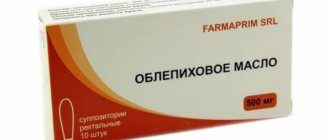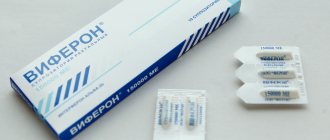Home | About us | Delivery | Advertisers | Login | Registration
- Medicines
- dietary supplementsVitamins
- Categories from A to Z
- Brands from A to Z
- Products from A to Z
- Medical equipment
- beauty
- Child
- Care
- Honey products appointments
- Herbs and herbal teas
- Medical nutrition
- Journey
- Making medicinesStock
Pharmacy online is the best pharmacy in Almaty, delivering medicines to Almaty. An online pharmacy or online pharmacy provides the following types of services: delivery of medicines, medicines to your home. Online pharmacy Almaty or online pharmacy Almaty delivers medicines to your home, as well as home delivery of medicines in Almaty.
my basket
Apteka84.kz is an online pharmacy that offers its customers medicines, medicinal and decorative cosmetics, dietary supplements, vitamins, baby food, intimate products for adults, medical equipment and thousands of other medical and cosmetic products at low prices. All data presented on the Apteka84.kz website is for informational purposes only and is not a substitute for professional medical care. Apteka84.kz strongly recommends that you carefully read the instructions for use contained in each package of medicines and other products. If you currently have any symptoms of the disease, you should seek help from a doctor. You should always tell your doctor or pharmacist about all the medicines you take. If you feel you need further help, please consult your local pharmacist or contact our GP online or by telephone.
© 2021 Pharmacy 84.
Instructions for use BIFIDUMBACTERIN DRY
Bifidumbacterin dry is used orally for intestinal diseases, and intravaginally in obstetric and gynecological practice.
Remove the metal cap and rubber stopper from the bottle. The contents of the bottle are dissolved with boiled water at room temperature at the rate of 1 teaspoon per 1 dose of the drug.
Dissolution method:
- the required number of teaspoons of water is poured into the glass (in accordance with the number of doses indicated on the container label), then a small amount of water is transferred from the glass to the bottle to dissolve the dry mass. After dissolution, the contents of the bottle are transferred to the same glass and mixed.
One teaspoon of the drug dissolved in this way constitutes one dose. The required number of doses (respectively, teaspoons) is drunk 20-30 minutes before meals. For infants, the medicine can be given immediately before feeding.
For intestinal diseases, the duration of treatment with bifidumbacterin is determined by the severity of clinical manifestations, the age of the patient and is 2-4 weeks, and in some cases up to 3 months. For prophylactic purposes, 5 doses are prescribed 1-2 times a day for 1-2 weeks.
For newborns at risk, it is advisable to start using the drug in the maternity ward from the first day of life until discharge, 1-2 doses per dose 3 times a day.
For intestinal diseases in children in the first six months of life, the drug is prescribed in 3 doses per dose 3 times a day. Children of the second half of the year and older - 5 doses 2 times a day.
If gastrointestinal dysfunction occurs in children and there is a threat of necrotizing ulcerative enterocolitis, up to 10 doses per day are prescribed.
For acute chronic inflammatory diseases of the small and large intestines, colitis and enterocolitis in adults, 5 doses 2-3 times a day are recommended.
In complex therapy with antibiotics and other antibacterial drugs, it is recommended:
- children under 1 year, 5 doses 2-3 times/day, children over 1 year, 5 doses 3-4 times/day, adults, 10 doses 2-3 times/day.
For intravaginal administration, bifidumbacterin is dissolved in the above manner. A sterile tampon is impregnated with the resulting suspension of the drug, which is inserted intravaginally and left for 2-3 hours.
For inflammatory gynecological diseases and prenatal preparation of pregnant women at risk, bifidumbacterin is prescribed 5-10 doses 1 time / day for 5-8 days under the control of restoration of the purity of vaginal secretion to the I-II degree and the disappearance of clinical symptoms of inflammation. If necessary, the course of treatment with bifidumbacterin can be repeated.
Bifidumbacterin 10ml liquid concentrate of bifidobacteria 10 pcs.
pharmachologic effect
Immunomodulatory, normalizing intestinal microflora. It is an antagonist of a wide range of pathogenic and opportunistic microorganisms; activates the digestion process and gastrointestinal tract functions, metabolic processes and nonspecific resistance of the body.
Composition and release form Bifidumbacterin 10ml liquid concentrate of bifidobacteria 10 pcs.
Concentrated microbial mass of 5 strains of bifidobacteria (Bifidobacterium longum, Bifidobacterium bifidum, Bifidobacterium adolescentis, Bifidobacterium bifidum 1, Bifidobacterium bifidum 791), which are in a living active form (1010-1011 cfu per 1 cm3).
Description of the dosage form
A crystalline or porous mass of various shades of beige or whitish-gray, with a specific odor. The reconstituted drug is a homogeneous suspension of beige or whitish-gray color.
Characteristic
Liquid bifidobacterium concentrate is an innovative bifidobacteria-containing probiotic preparation - it is a concentrated microbial mass of 5 strains of bifidobacteria, which are in a live active form (1010-1011 cfu per 1 cm3).
The human microflora is normally represented by 70-90% bifidobacteria, which play a major role in the digestive processes.
Bifidobacteria have immunostimulating activity and have a beneficial effect on the body in diseases of the gastrointestinal tract. Bifidobacteria produce enzymes, vitamins B and K, and improve the absorption of fat-soluble vitamins and microelements. In addition, they help remove toxins from the body and reduce cholesterol levels.
Environmental pollution, increased radiation, stress, the use of chemicals in the food industry and medicine, and intestinal infections cause partial or complete death of bifidobacteria. This further leads to the development of pathogenic microflora and the formation of dysbacteriosis.
As representatives of the normal intestinal microflora, bifidobacteria longum and bifidum suppress the growth of a wide range of pathogenic microorganisms. The high level and predominance of bifidobacteria in the intestines, achieved with the use of CBZH (liquid bifidobacterium concentrate), normalizes the activity of the gastrointestinal tract, improves metabolic processes in the human body, and increases its immune status.
Directions for use and doses
For intestinal dysbiosis, Bifidumbacterin is used orally.
In obstetric and gynecological practice - intravaginally.
Dissolve the contents of the bottle with boiled water at room temperature at the rate of 5 ml (teaspoon) of water per 1 dose of the drug.
Dissolution is carried out as follows: pour the required amount of water into a glass (in accordance with the number of doses indicated on the bottle); open the bottle by removing the cap and stopper; transfer a small amount of water from the glass into the bottle; after dissolution (the drug dissolves in no more than 10 minutes), transfer the contents of the bottle into the same glass and mix.
One teaspoon of the drug dissolved in this way is 1 dose. The dissolved drug cannot be stored.
Take the required number of doses (respectively, teaspoons) 20-30 minutes before meals. The drug can be given to infants immediately before feeding.
For dysbacteriosis caused by intestinal diseases in children of the first half of life, the drug is prescribed 5 doses per dose 2 times a day, for children of the second half of the year and older - 5 doses 3 times a day.
To prevent dysbacteriosis, it is advisable for newborns at risk to start using the drug in the maternity ward from the first day of life until discharge, 2.5 doses per dose 2 times a day.
For severe forms of dysbacteriosis in children, which are caused by sepsis, pneumonia and other purulent-infectious diseases, the drug is prescribed 5 doses 3 times a day in combination with generally accepted methods of treating the underlying disease. In this group of children with the threat of necrotizing ulcerative enterocolitis, the dosage of Bifidumbacterin is increased to 20 doses per day.
For dysbiosis in adults caused by acute and chronic inflammatory diseases of the small and large intestines, colitis and enterocolitis, the drug is recommended to take 5 doses 2-3 times a day.
The duration of treatment with Bifidumbacterin is determined by the severity of clinical manifestations, the age of the patient and is 2-4 weeks, and in some cases up to 3 months.
For dysbiosis and inflammatory diseases of the female genitalia and prenatal preparation of pregnant women at risk, Bifidumbacterin is prescribed 5-10 doses once a day for 5-8 days under the control of restoration of the purity of vaginal secretions to the I-II degree and the disappearance of clinical symptoms of inflammation. For intravaginal use, insert a sterile tampon soaked in the drug into the vagina and leave for 2-3 hours. If necessary, the course of treatment with Bifidumbacterin can be repeated.
For preventive purposes, 5 doses are prescribed 1-2 times a day for 1-2 weeks.
Indications for use Bifidumbacterin 10ml liquid concentrate of bifidobacteria 10 pcs.
- Acute intestinal infections.
- Acute and chronic intestinal diseases.
- Constipation.
- Gastrointestinal diseases of various etiologies (gastritis, gastrodoudenitis, colitis).
- Allergic diseases (bronchial asthma, eczema, neurodermatitis, atopic dermatitis).
- For vaginitis of various etiologies in children and adults.
Contraindications
Individual intolerance to product components.
Application Bifidumbacterin 10ml liquid concentrate of bifidobacteria 10 pcs. during pregnancy and breastfeeding
Bifidobacteria are representatives of the normal human microflora. Therefore, drugs made on their basis can be used during pregnancy and lactation.
special instructions
The drug does not affect the performance of activities that require special attention and quick reactions (driving vehicles, machinery, etc.).
The drug is stored in accordance with SP 3.3.2.1248-03 at a temperature of 2 to 10 °C.
Keep out of the reach of children.
Transportation conditions: the drug is transported in accordance with SP 3.3.2.1248-03 at a temperature of 2 to 10 °C.
The drug is not suitable for use:
- expired;
- without marking;
- the integrity of the packaging has been damaged;
- with changed physical properties
Overdose
No cases of overdose have been reported.
Side effects Bifidumbacterin 10ml liquid concentrate of bifidobacteria 10 pcs.
Not identified.
Drug interactions
The use of Bifidumbacterin can be combined with the simultaneous administration of antiviral and immunomodulatory therapy.
Bifidumbacterin dry 5 doses bottles No. 10
Dosage forms
lyophilisate for the preparation of a solution for oral and local use 5dz, lyophilized powder for the preparation of a solution 5dz, lyophilized powder for oral administration 5dz
Manufacturers
Allergen Stavropol (Russia), Biocom (Russia), Biomed (Russia), Virion (Russia), Ekaterinburg enterprise for the production of bacterial preparations (Russia), Immunopreparat (Russia), Lanafarm (Russia), Microgen NPO (Allergen) (Russia), Microgen NPO (Biomed Perm NPO) (Russia), Microgen NPO (Virion NPO) (Russia), Microgen NPO (State Unitary Enterprise for the production of bacterial preparations named after Gabrichevsky) (Russia), Microgen NPO (Immunopreparat) (Russia), Microgen NPO ( Nizhny Novgorod enterprise for the production of bacterial preparations-Imbio (Russia), Microgen NPO (Omsk enterprise for the production of bacterial preparations) (Russia), Microgen NPO (Tyumen State Enterprise for the production of bacterial preparations) (Russia), Nizhny Novgorod enterprise for the production of bacterial preparations-Imbio (Russia), Omsk Enterprise for the Production of Bacterial Preparations (Russia), Enterprise for the Production of Bacterial Preparations named after Gabrichevsky (Russia), St. Petersburg Research Institute of Vaccines and Serums and Enterprise for the Production of Bacterial Preparations (Russia), St. Petersburg Research Institute of Epidemiology and Microbiology ( Russia), Tyumen enterprise for the production of bacterial preparations (Russia), Enzyme (Russia), (Russia), Ecopolis (Russia), Ecotem REC (Russia)
PharmGroup
Agents that normalize intestinal microflora
International nonproprietary name
Bifidobacterium bifidum
Leave procedure
Available without a prescription
Compound
Contains freeze-dried microbial mass of living, antagonistically active strains of Bifidobacterium bifidum No. 1 and crystalline lactulose.
pharmachologic effect
Normalizing intestinal microflora, immunomodulating. It is an antagonist of a wide range of pathogenic and opportunistic microorganisms; activates the digestion process and gastrointestinal tract functions, metabolic processes and nonspecific resistance of the body.
Indications for use
Correction of intestinal microflora: dysbiosis (including prevention during therapy with antibiotics, NSAIDs, hormones, radiation and chemotherapy, stress); acute infectious diseases and intestinal dysfunction, chronic gastrointestinal diseases, allergic diseases (in complex treatment); bacterial vaginosis and colpitis; prevention of mastitis in nursing mothers at risk. In pediatric practice: infectious (purulent-septic processes, pneumonia) and other diseases (complex therapy in young children; anemia, malnutrition, rickets and allergic diathesis in weakened children; early transfer of infants to artificial feeding and feeding with donor milk) .
Contraindications
Hypersensitivity.
Side effect
Not identified.
Directions for use and dosage
Bifidumbacterin is used orally for intestinal diseases, and intravaginally in obstetric and gynecological practice. In obstetric and gynecological practice, it is preferable to use bifidumbacterin, which is produced in the form of suppositories. Remove the metal cap and rubber stopper from the bottle. The stem of the ampoule is filed and broken off, turning the ampoule with the stem down to avoid glass getting into the ampoule. The contents of the bottle (ampoule) are dissolved with boiled water at room temperature at the rate of 1 teaspoon per 1 dose of the drug. Method of dissolution. The required number of teaspoons of water is poured into a glass (in accordance with the number of doses indicated on the container label), then a small amount of water is transferred from the glass into a bottle (ampoule), and shaken (up to 10 times). The drug should dissolve within 5 minutes to form an opaque homogeneous suspension. The contents of the bottle (ampoule) are transferred to the same glass and mixed. One teaspoon of the drug dissolved in this way constitutes one dose. The required number of doses (teaspoons) is drunk 20-30 minutes before meals. The drug can be given to infants immediately before feeding. To treat the area of the nipple and areola in postpartum women, the drug dissolved in the above manner is applied with a sterile swab 20-30 minutes before feeding, 2-2.5 doses for 5 days. A tampon soaked in the drug is left on the surface of the mammary gland until feeding begins. For intravaginal administration, bifidumbacterin is dissolved using the above method. The resulting suspension of the drug is impregnated with a sterile tampon, which is inserted intravaginally and left for 2-3 hours. It is unacceptable to dissolve the drug with hot water and store it in dissolved form. If you use the bottle in several doses (2-3 times a day), you can use a dry, clean object (spoon, eye blade, etc.) to divide the dry mass into approximately 2-3 parts, dissolve the used part in water and drink, and the rest of the dry mass store until the next dose in the refrigerator in a carefully closed bottle. Bifidumbacterin tablets are administered orally with boiled water. For intestinal diseases: for children in the first six months of life, the drug is prescribed 3 doses per dose 3 times a day. For children in the second half of life and older - 5 doses 2 times a day. For newborns at risk, it is advisable to start using the drug in the maternity ward from the first day of life until discharge, 1-2 doses per dose 3 times a day. Children with sepsis, pneumonia and other purulent-infectious diseases are prescribed 2-3 doses 3 times a day in combination with generally accepted methods of treating the underlying disease. If gastrointestinal dysfunction and the threat of ulcerative necrotizing enterocolitis occur in this group of children, the dosage of bifidumbacterin is increased to 10 doses per day. For acute and chronic inflammatory diseases of the small and large intestines, colitis and enterocolitis in adults, 5 doses 2-3 times a day are recommended. For intestinal diseases, the duration of treatment with bifidumbacterin is determined by the severity of clinical manifestations, the age of the patient and is 2-4 weeks, and in some cases - up to 3 months. For preventive purposes, 5 doses are prescribed 1-2 times a day for 1-2 weeks. For inflammatory diseases of the female genitalia and prenatal preparation of pregnant women at risk, bifidumbacterin (vial form) is prescribed 5-10 doses once a day for 5-8 days under the control of restoration of the purity of vaginal secretions to grade 1-2 and the disappearance of clinical symptoms of inflammation . If necessary, the course of treatment with bifidumbacterin can be repeated.
special instructions
It is unacceptable to dissolve the drug in hot water (above 40 °C) and store it in dissolved form. Prescribe with caution to patients with lactase deficiency.
Storage conditions
The drug should be stored in a dry and dark place at a temperature not exceeding +10 degrees. C Transportation can be carried out by all types of covered transport at a temperature not exceeding +10 degrees. WITH.
Literature
Encyclopedia of Medicines, 2002. Instructions for the use of bidumbacterin dry, approved on December 9, 1990 by the Ministry of Health of the Russian Federation.
Interaction
The effect is enhanced by vitamins (especially group B), and reduced by antibiotics.
Synonyms
Bifidumbacterin, Bifidumbacterin powder, Bifidumbacterin in suppositories, Bifidumbacterin forte, Bifidumbacterin-1000, BifoVir, Probifor
Bifidumbacterin
Bifidumbacterin is used orally for intestinal diseases, and in obstetric and gynecological practice: locally (intravaginally).
1. Treatment and prevention of gastrointestinal diseases:
Dissolve the contents of the bottle with boiled water at room temperature at the rate of 5 ml (teaspoon) of water per 1 dose of the drug.
Dissolution is carried out as follows: pour the required amount of water into a glass (in accordance with the number of doses indicated on the bottle); open the bottle by removing the cap and stopper; transfer a small amount of water from the glass into the bottle; after dissolution (the drug dissolves in no more than 5 minutes to form an opaque homogeneous suspension), transfer the contents of the bottle into the same glass and mix. One teaspoon of the drug dissolved in this way is 1 dose. The dissolved drug cannot be stored.
Take the required number of doses (respectively, teaspoons) 20-30 minutes before meals or 1-1.5 hours after meals. The drug can be given to infants immediately before feeding.
For intestinal diseases: for children in the first half of life, the drug is prescribed 5 doses per dose 2 times a day, for children in the second half of the year and older - 5 doses 3 times a day.
For newborns at risk, it is advisable to start using the drug in the maternity ward from the first day of life until discharge, 2.5 doses per dose 2 times a day.
Children with sepsis, pneumonia and other purulent-infectious diseases are prescribed 5 doses 3 times a day in combination with generally accepted methods of treating the underlying disease. If gastrointestinal dysfunction and the threat of ulcerative necrotizing enterocolitis occur in this group of children, the dosage of bifidumbacterin is increased to 20 doses per day.
For acute and chronic inflammatory diseases of the small and large intestines, children over 3 years of age and adults are recommended to take 5 doses 2-3 times a day. In severe cases of the disease, the dose may be doubled.
The duration of treatment with bifidumbacterin is determined by the severity of clinical manifestations, the age of the patient and is 2-4 weeks, and in some cases - up to 3 months.
For prophylactic purposes, the drug is prescribed 5 doses 1-2 times a day for 1-2 weeks.
2. In obstetric and gynecological practice
:
To treat the area of the nipple and areola of postpartum women, the contents of one bottle (5 doses) are dissolved in a small amount of chilled boiled water, soaked in the solution of 2 sterile tampons, which are applied to the nipple and areola for 20-30 minutes before each feeding for 5 days. A tampon soaked in the drug is left on the surface of the mammary gland until feeding begins.
For inflammatory diseases of the female genitalia and prenatal preparation of pregnant women at risk, bifidumbacterin is prescribed 5-10 doses once a day for 5-8 days under the control of restoration of the purity of vaginal secretions to grade I-II and the disappearance of clinical symptoms of the disease.
For intravaginal administration, bifidumbacterin is also dissolved in the above manner. The resulting suspension of the drug is impregnated with a sterile tampon, which is inserted intravaginally without squeezing and left for 2-3 hours.
If necessary, the course of treatment with bifidumbacterin can be repeated.



